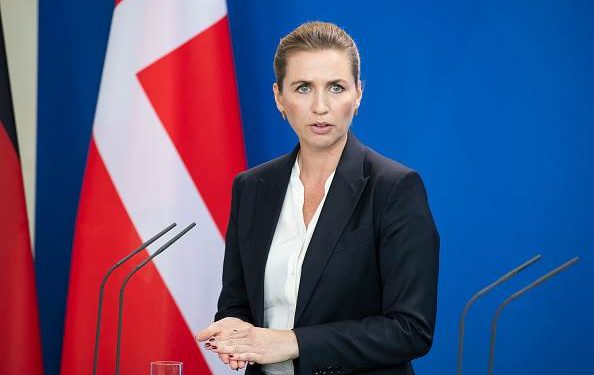In a broad interview, Mette Frederiksen Denmark’s Prime minister expressed her view that “mass migration poses a threat to everyday life in Europe.”
The socialist Danish Prime Minister finds little common ground with the Trump administration on most issues However, in a surprising turn, Frederiksen, who leads a center-left government, acknowledged in an interview with POLITICO that Vice President JD Vance of the Trump administration made a valid point regarding immigration and the need to restrict the large-scale influx of foreigners.
“I view mass migration into Europe as a threat to everyday life on the continent,” stated the leader of the affluent Scandinavian welfare state, echoing remarks made by Vance weeks earlier at the Munich Security Conference. During the interview, Frederiksen used the terms “mass migration” and “irregular migration” interchangeably.
On February 14, Vance addressed a partially stunned European audience, declaring, “There is nothing more urgent than mass migration,” and arguing that it posed a greater threat than Russia. Frederiksen, who was present during Vance’s speech, expressed that she “unfortunately” disagreed with his assessment of Russia, which she described as Europe’s top security concern. However, she acknowledged that Vance had a valid point regarding migration.
Frederiksen stands out as one of the few remaining socialist leaders in power across Europe, a rarity in a political landscape dominated by conservatives. Her strict migration policies have played a significant role in maintaining her position. Since her election in 2019, she has overseen a dramatic shift in Denmark’s immigration approach, transforming it from one of openness to one of the most restrictive regimes in Europe, if not globally.
While Danish voters have largely supported her hardline stance on limiting the entry of foreign nationals, human rights groups and refugee advocates have criticized her government, accusing it of fostering “racism” and “discrimination.”
Across Europe, conservative leaders in countries like Austria, Hungary, Germany, and the Netherlands have adopted similar positions on migration, often with considerable success. In contrast, the popularity of Frederiksen’s socialist counterparts has declined. Outgoing German Chancellor Olaf Scholz and Spanish Prime Minister Pedro Sánchez have taken a different approach, opposing strict immigration policies and advocating for more lenient measures at the EU level.







